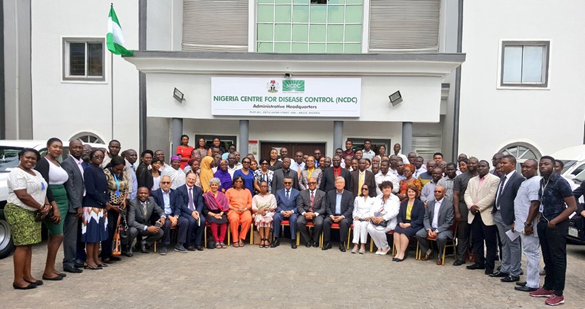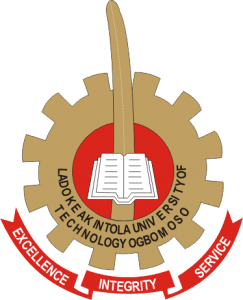Chikwe Ihekweazu : 2 Years stewardship of Nigeria Centre for Disease Control
After two years, building the Nigeria Centre for Disease Control is work in progress
“If you’re walking down the right path and you’re willing to keep walking, eventually you’ll make progress.” — Barack Obama
These words from former US President, President Barack Obama have inspired me since I became the Chief Executive Officer of the Nigeria Centre for Disease Control (NCDC) on the 15th of August 2016. This week marked the two-year mark of this journey- a journey that has been an interesting learning curve and provided a prism into all that makes Nigeria a great country, and all that is holding it back from greatness.
In writing this article and thinking about what to share this week, I went back to the article I wrote exactly a year ago- Marking One Year at NCDC. In that piece, I shared our top ten priorities for the year that has just gone by and there is no better way to review our progress other than reviewing where we were, where we are, and where we want to be.
At this time last year, we were only restarting the process for the passage of the Bill establishing NCDC. Our young parastatal has existed for about seven years, albeit without full legislative backing. Today, the Bill has been passed by the Upper and Lower chambers of the National Assembly, awaiting Presidential assent. The political commitment from the Executive and Legislative arms of Government shows a recognition of the importance of the work we do- one I am extremely grateful for. The final passage of the Bill will provide us with a stronger backing to protect the health of all Nigerians.
This year, the WHO Director General Dr Tedros and his delegation visited us at NCDC
Our new National Reference Laboratory is gradually taking position as the hub of public health diagnosis in Nigeria. One of the biggest wins for us in the last year, has been redeveloping and strengthening this laboratory in Abuja and its sister campus in Lagos- the Central Public Health Laboratory. One of our biggest criticisms that we have received has been our inability to diagnose specific diseases in Nigeria and having to send samples to laboratories outside Nigeria. Currently, we have in-country capacity to test for all epidemic prone diseases in the country: Monkeypox, yellow fever, measles, cholera, Lassa fever and cerebrospinal meningitis (CSM). We have added an additional laboratory- the Virology Centre, Federal Teaching Hospital Abakaliki- to our network of Viral Haemorrhagic Fever (VHF) laboratories.
The work to strengthen our diagnostic capacity would have been impossible without the support of our partners at the World Health Organisation, Public Health England and the US Centers for Disease Control. The National Reference Laboratory is also serving as the central lab for the ongoing National HIV/AIDS Indicator Survey (NAIIS) led by our sister agency, National Agency for the Control of AIDS (NACA). This is a remarkable example of government ownership and sustainability, an excellent collaboration led by the government to strengthen government systems. But, there is still much work to be done, especially in getting the 2KM stretch of road to the laboratory tarred.
When we began, we relied on paper and excel based reporting for receiving most of our surveillance data from the States. In aligning with global best practice, Nigeria is joining the rest of the world to digitalise its operations. Relying on excel was a difficult situation where sometimes, reports came in either very late or incomplete. In some cases, this affected response activities. (read: Time delays during the Meningitis outbreak). To move from that stage, we began the digitisation of our surveillance system using a tool called SORMAS. With SORMAS, we have an application that provides case-based reporting for epidemic prone diseases. We have deployed this tool in all Local Government Areas in seven States across the country and growing rapidly to expand to at least 14 States by the end of 2018. In addition to SORMAS for case based reporting, we also use ‘Tatafo’ for event based surveillance, and an incident management tool called SitAware, while mSERS is used for aggregate reporting. We are very grateful to our partners at the German HZI, Public Health England and University of Maryland, Baltimore for supporting the development and roll out of these tools. Many other national public health institutes have moved to digital tools for surveillance — and we are right up there with them.
Our emergency operations coordination has greatly improved. We now have a National Incident Coordination Centre (ICC) for coordinating outbreak preparedness and response activities in Nigeria at NCDC. With perseverance from our Team at NCDC, we have also began the roll out of State Public Health Emergency Operations Centres (EOCs), At the moment, we have provided six States in Nigeria with EOCs and the goal is to reach 18 States by the end of 2018. It has been an interesting learning process for us and we hope with this, States in Nigeria become better prepared and structured for outbreak response.
We continue to aggressively build the workforce for health protection in Nigeria. Together with the Irrua Specialist Teaching Hospital, we trained over 500 health care workers across all the regions of Nigeria on the prevention, detection and control of Lassa fever. We have started an aggressive research programme, supported by WHO to gain a better understanding of the drivers of the disease, which will help us improve our response.
There have been several other wins for us including the aggressive public health communications campaign we have begun, capacity building of the NCDC Team and a greater responsibility and contribution in the global health space. Nigeria is now officially a member of the Global Health Security Agenda (GHSA) countries and Global Outbreak and Response Network (GOARN). We have received incredible support from several partners, as we build more trust and confidence in our work.
There is no doubt that these two years of service to Nigeria have been one of my most fulfilling, despite the challenges. Although, the Chief Executive of an organisation often gets all the media attention, the drivers of all our work and small success are the staff of NCDC. I am privileged to have an incredible Team that makes all this work.
I am also extremely grateful for the leadership and support from the Honourable Minister and Minister of State for Health. Nigeria is on the path to building a strong health system and their commitment has helped NCDC make its valuable contribution.
We recognise that we still have areas to improve on and continue working towards this. Ultimately, we are building a strong national public health institute that can effectively protect the health of Nigerians. Stronger Together.
Chikwe Ihekweazu
CEO NCDC





Comments
Post a Comment